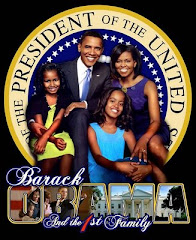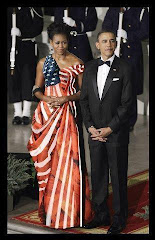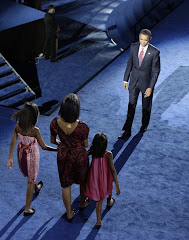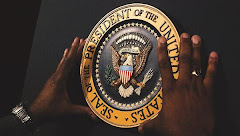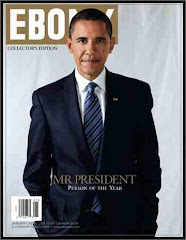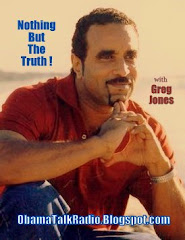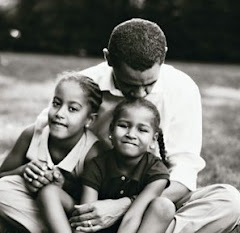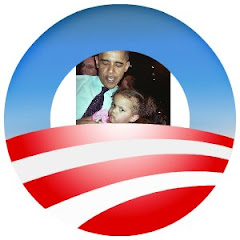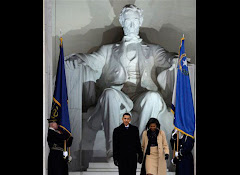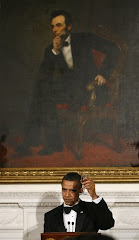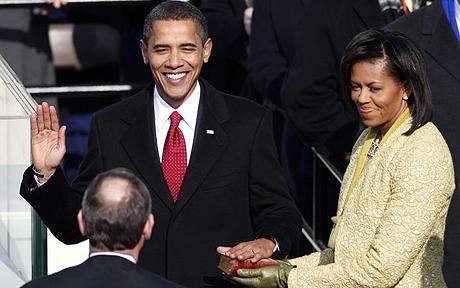
Much has been said and written in the past six months about Barack Obama's need to attract white voters in sufficient numbers to be elected, first in the primary (done) and now in the general election. It is a truism that somehow got twisted into Obama having a "problem with white voters" by the Clinton campaign and a compliant and mathematically illiterate traditional media. More to the point now, it is McCain who needs to score exceptionally well among white voters, better in fact than any other Republican presidential candidate in the past 20 years, including George H. W. Bush in his rout of Michael Dukakis in 1988.
A combination of changing demographics and heightened interest among groups favorable to Obama means that McCain will likely need over two-thirds of the vote of white voters 30 and older, and over 60% of all white voters, to even have a shot at winning. By comparison, the GOP's best presidential scores among whites in the last five elections belong to the elder Bush (60% against Dukakis) and George W. Bush (58% against John Kerry). The task is not impossible, but increasingly unlikely.
It is no surprise, then, that the McCain campaign has suddenly started focusing on race. The meaningless "race card" play is as desperate now as it was when Bill Clinton used it late in the primary. It is a frantic plea to the sliver (or is it more?) of white voters who somehow think that African-Americans can pull out a trump card that magically cowers all white people around them into submitting to their will. The "race card" covers a wide, polymorphous range of presumed white grievances, not least of which is affirmative action, which 53% of white voters say is "no longer necessary" in one recent survey; perhaps not coincidentally, the same percentage of white voters thought Obama's comment saying he didn't look like past presidents was "racist."
With that in mind, the Clintons' raw recourse to race in some of the late primary states did appear to have some effect: in Pennsylvania, for instance, half of Clinton's winning margin was provided by white voters who openly said that the candidate's race mattered "a lot" in their choice. It appears that McCain too sees race-baiting as his only way to the presidency and is turning to it early in the hope of stemming an unfriendly tide.
The prospects for McCain nonetheless remain daunting, even if one believes that openly bringing race to the table will attract more voters than alienate others (this is not a given.)
How did this happen?
At the risk of making Karl Rove and Mark Penn turn in their political graves, forget about micro-trends and let's look at the old-school, but frankly still meaningful broad racial, ethnic and age demographics at play.
African-Americans, Democrats' most loyal group, will continue to support the party's nominee with the same margin or better as in the past. What will change here is that black turnout can be expected to rise, conservatively to 12% of the electorate (from 11% in 2004.)
Among Latinos, McCain had high hopes, with his Arizona roots and moderate stance on immigration. That was until he cut and ran on that issue in the GOP primary, bringing him more or less in line with a party whose approval among Latinos is sinking even faster than among the general population (obviously not only because of its stance on immigration.) By doing this, McCain abandoned all hope of duplicating Bush's inroads in 2004. Recent polls have been remarkably consistent in pegging the race among Latino voters at about 70% of decided voters in favor of Obama. As the McCain campaign likes to say, he needs no introduction to this group: we take that to mean that there is little for him to add, that the majority of Latino voters' mind is made up and that these numbers will not change. Adding to McCain's problems is that the number of Hispanic voters has grown in every one of the past four years, conservatively to 9% of the voting age population.
Another problem for McCain: young white voters, who have tilted solidly towards Democratic candidates in recent elections (10% margin for Kerry in 2004.) The difficulty for the Republican this year is that the Democrat is especially attractive to young voters (Obama surely has more youth appeal than, say, Kerry); and that as echo boomers (children of baby boomers) have come of age, the number of voting-age young people has swollen. Even if 18-29 year-olds don't vote in a higher proportion than usually (and most observers assume they will), there are far more of them than there were four or eight years ago.
With white voters thirty or older representing a shrinking share of the electorate, and Republicans' already low popularity with the rest of the voting population dwindling, the challenge grows exponentially for McCain. Not coincidentally, he has rarely been able to exceed a 45% share against Obama in the RealClear and Pollster general election poll composites. It may be that the actual ceiling when undecided voters are accounted for is 47 or 48%, but it is unlikely to be higher.
Of course, the presidential election is based on the electoral college and individual states' outcomes, not on national polling as was sadly demonstrated in 2000. Here too, though, the picture is bleak for McCain. Outside of a dozen dazzlingly red states, mostly small and mostly in the Deep South, Appalachia and the Plains, McCain cannot count on any strong traditional GOP support. Again, demographic composition and recent shifts are working against him in a number of key states without which he cannot even begin to hope to be elected.
In the South, McCain is leading by single digits in Mississippi, South Carolina and Georgia, all of which have large African-American populations. Obama is unlikely to win these, but he sure will give McCain a fight, especially in Georgia, an unpleasant prospect for McCain whose limited resources should not be depleted in such Republican strongholds. More ominously, both candidates are essentially tied in North Carolina and Virginia, easy wins for Bush in 2004. Both states feature a potentially lethal mix for McCain: a large pool of black voters, young and/or educated whites, and a growing Latino population.
In the Southwest, McCain's problems are best symbolized by Arizona, his home state, in which he is struggling to beat Obama, thanks in no little part to the fact that Hispanics now represent 25% of voters. Texas should not be close either, yet here too Obama is lurking behind McCain by just 6% or so. McCain may not have given up yet on New Mexico and Colorado (both of which Bush won), but he may as well in light of polling and of demographics that favor a general shift towards the Democratic party (open Senate seats in both states are expected to move into the Democrat column this year.) Nevada remains a moderately bright spot for McCain, as it appears to be shifting more slowly towards Democrats than its neighbors; that said, here too Obama is now leading.
Obama's home region, the Midwest, is a nightmare for McCain. States previously known as swing have swung so far towards Obama (and in some cases Democrats generally) that they are considered all but unattainable by McCain: Wisconsin, Minnesota, and Iowa (all decided by less than 3% margins in 2004) will all vote for Obama. Perhaps worse for McCain, Indiana, North and South Dakota, and Missouri are in play, an unthinkable occurrence four years ago. McCain's hopes in the region rest on Ohio and Michigan. It is a measure of the hill he has to climb that in Ohio, an absolute must-win Bush state for him, McCain is currently slightly behind Obama. Michigan is essentially McCain's only hope at this point of gaining a significant formerly Democratic state (thank you DNC for your ineptitude in handling that primary problem, and Hillary Clinton for exacerbating it after all was lost), and even there he is behind Obama. It is no accident that both Ohio and Michigan, bleeding jobs and population, are essentially immobile demographically and are showing the least movement toward the Democrat.
Another state McCain cannot lose under any circumstance is Florida. Thanks to Obama's late start there and Democratic primary stupidity (see Michigan above), the state has only recently slowly started moving towards the Democrat. That said, it IS moving, with Obama slightly ahead. A look at the Congressional races in the state shows what McCain may be up against: Florida's three Cuban-American Representatives, all Republicans, are in the fight of their electoral life, demonstrating the deep demographic and political shifts in the state, especially in South Florida. The most recent survey gives Obama a 20% edge among Latinos in Florida, a sea change from 2004 when the exit poll numbers were the exact reverse.
Aggravating the situation for McCain, smaller GOP states such as Alaska and Montana are threatening to break off, less because of demographics than of local conditions and Republican corruption and ineptitude. The presence of former GOP Congressman Bob Barr at the head of the Libertarian ticket will probably not be material in most states, but in some close contests (such as Montana and Alaska) his role could be remarkably akin to that played by Ralph Nader in 2000.
The Northeast, including Pennsylvania, will vote en bloc for Obama except for West Virginia and, just possibly, New Hampshire, McCain's political home away from home in which he is nonetheless lagging behind Obama.
None of this is to say that the election is foretold, that Democrats should be complacent, or that Obama has a cakewalk ahead of him. However, McCain's campaign to date is so widely off the mark that it is hard to imagine he will be able to get his groove back with white voters, a group whose aspirations he should be deeply familiar with. It also means that unless McCain can convince more white voters to cast their ballot for him than for any Republican in recent memory, and to match Ronald Reagan's performance against Walter Mondale in 1984, he will not win. This too is unlikely: after all, many of these voters knew Reagan. And McCain, to them, is no Reagan.send comments
